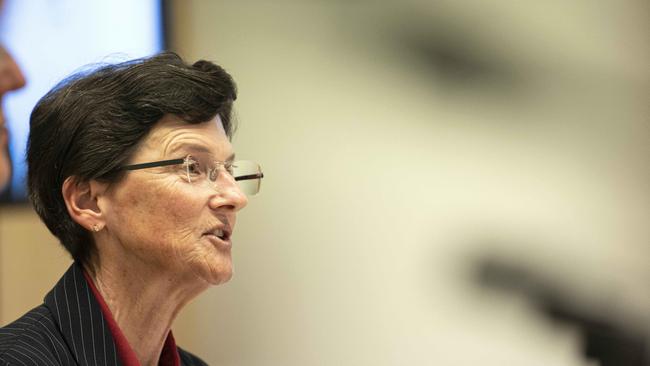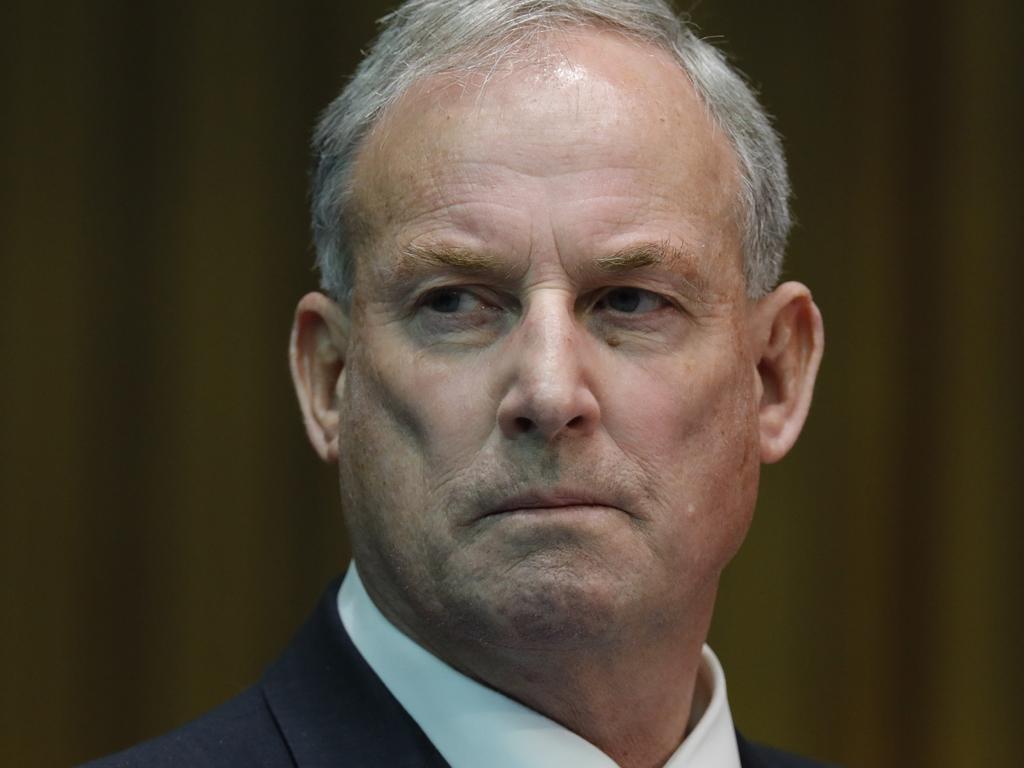No aged-care sanctions in second coronavirus wave
The aged-care watchdog failed to issue a single sanction in Victoria during the height of the state’s deadly second wave.

The federal aged-care watchdog failed to issue a single sanction in Victoria during the height of the state’s deadly second wave as coronavirus infections spiralled out of control, tearing through the state’s nursing homes and killing more than 600 residents.
The Aged Care Quality and Safety Commission did not impose its harshest disciplinary action on any Victorian nursing home in the three months to the end of September, despite forcing 18 facilities to address immediate and severe risks, according to a newly published summary of the regulator’s activities.
The document shows 74.4 per cent of Victorian aged-care homes assessed during that period failed to meet one or more quality and safety standards, compared with 23 per cent in NSW and 30 per cent in Queensland.
In Victoria, 251 of the assessments were conducted “on site” and 1456 were conducted remotely. The report shows 18 homes failed five to 10 requirements and four failed 11 to 15.
The commission, previously accused of being a “toothless tiger”, can issue nursing homes with sanctions such as having their funding or approval withdrawn if they fail to heed warnings, but ACQSC did not do this.
“Notices to Agree” by contrast are issued by ACQSC Commissioner Janet Anderson when a provider’s non-compliance “poses an immediate and severe risk to the safety, health and wellbeing of recipients”.
The two sanctions issued over the period were at facilities in NSW and Western Australia, while four Victorian nursing homes received notices of non-compliance — a less severe warning than a “Notice to Agree.”
While overall complaints dropped from 2119 to 1859 over the period, most stemmed from infectious disease control, which garnered 406 complaints, or issues with personnel numbers, which received 241. No directions or “Notices to Agree” were issued off the back of these concerns.
Joseph Ibrahim, head of the health law and ageing research unit at Monash University, said issuing sanctions against non-compliant facilities might not have helped during an outbreak. However, he was surprised so few “Notices to Agree” were issued considering more than 200 homes grappled with an outbreak during the period.
“I think the issuing of sanctions during a pandemic is controversial,” he said. “But I would have expected more ‘Notices to Agree’, given what happened. It’s really peculiar, given Victoria had approximately 200 homes with some form of an outbreak.”
He said there were questions to be answered about why so few sanctions were issued in a normal year. “It’s hard to believe that with such widespread outbreaks across the state that the majority of homes were meeting minimum standards,” he said.
Opposition aged-care spokeswoman Julie Collins said older Australians deserved better from the watchdog.
“It beggars belief that despite more than 600 deaths, not one aged-care home in Victoria was sanctioned by the Morrison government’s regulator,” she said.
“The Morrison government’s regulator is a toothless tiger and clearly doesn’t have the powers and resources it needs to keep older Australian safe.”
Labor is calling for the independent reports into the deadly outbreaks at St Basil’s and Epping Gardens in Victoria to be released nearly four weeks after they were due to be made public on November 30. Both facilities received “Notices to Agree” during the July to September quarter.
Aged Care Minister Richard Colbeck on Wednesday said the reports would be released by Christmas as he doubled down on his wish to remain in charge of a sector being scrutinised by a royal commission due to hand down a final report in February.
Ms Anderson said it was incorrect to claim that because no sanctions had been issued that the Commission had failed in its regulatory obligations.
“The NTAs issued by the Commission contain all the provisions of sanctions and had greater enforceability because a provider’s failure to agree had more serious consequences and could directly result in the revocation of approval to provide Commonwealth-funded aged care,” she said.
The ACQSC report for the June to September quarter says reported allegations of serious physical assault and sexual assault rose from 1239 to 1384.
Announcing the mid-year economic and fiscal outlook on Thursday, Josh Frydenberg promised Australians would see more aged-care funding in the May budget, but he cautioned: “We will wait and see what the royal commission report shows before making those decisions.”







To join the conversation, please log in. Don't have an account? Register
Join the conversation, you are commenting as Logout